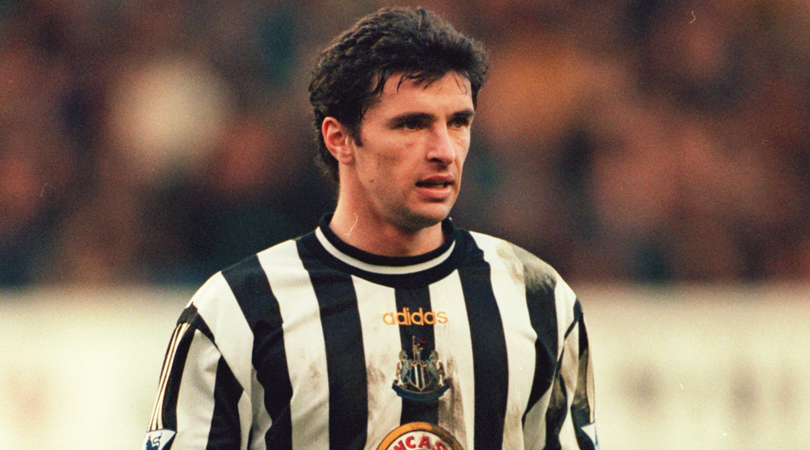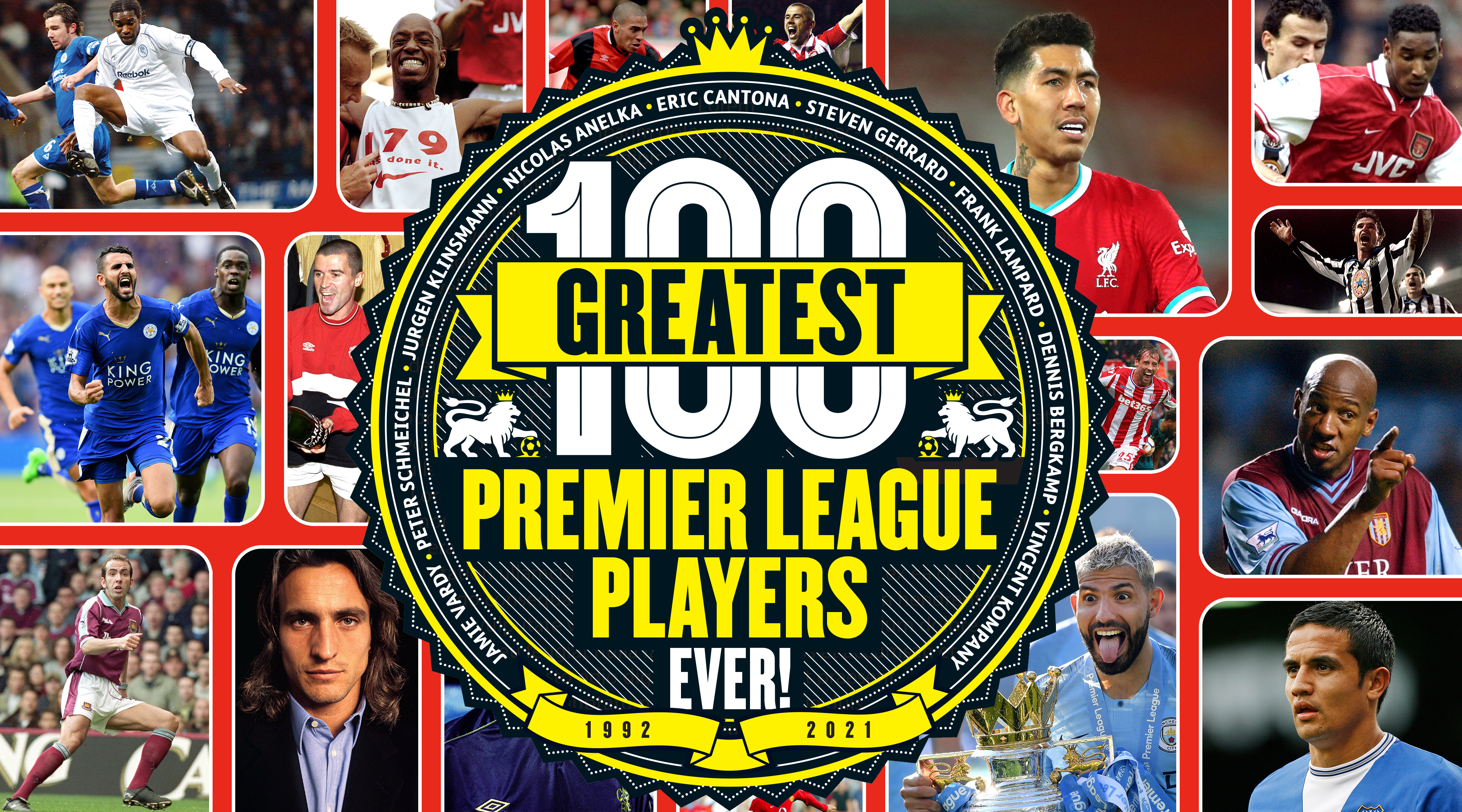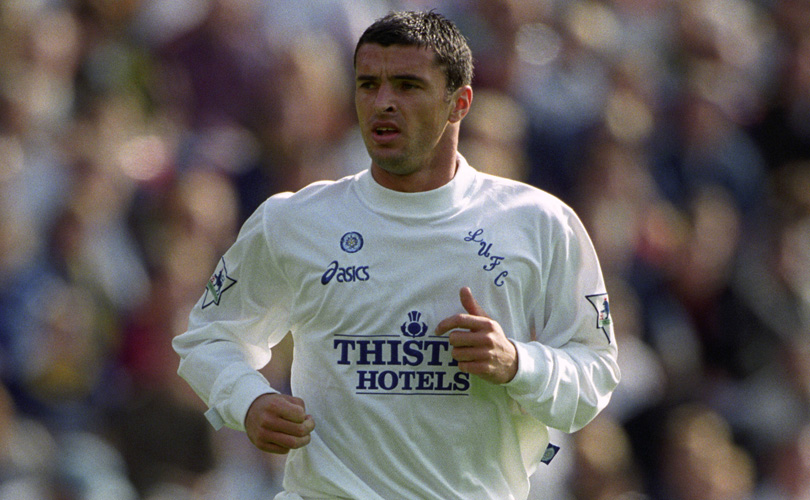Remembering Gary Speed: A Premier League legend
Ian Murtagh, who has reported on Newcastle for a quarter of a century, remembers a brilliant, beloved figure whose tragic passing shocked the football world almost a decade ago

Just before Gary Speed finally retired aged 40, having made almost 850 appearances in English football, the midfielder decided he needed another challenge. He was about to join the Sheffield United coaching staff, but that wasn’t enough for the all-action Welshman. So, he took up long-distance running, and in April 2010 entered the London Marathon to raise funds for the Sir Bobby Robson and John Hartson Foundations.
I spent a day with Gary at the Blades’ training ground in the build-up to the big race, and couldn’t understand how someone who claimed he wasn’t fit enough to play football should put himself through 26 miles of torture.
“It’s a different kind of fitness,” he said. “I don’t have the power to play at a decent level any more, but if you’re plodding in a marathon, then I’ll be able to plod all day.”
Plodding? Well, he plodded his way to smash his pre-race target of beating the four-hour mark. But that was typical Speed, the man blessed with model good looks who could seemingly turn his hand to anything. He mastered the guitar as a young player and became the life and soul at every party.

THE FULL LIST 100 greatest footballers in England's top flight since 1992
Those handsome features got me into a spot of bother with the midfielder within days of him joining Sir Bobby’s Newcastle United from Everton. I’d read that Speed had scooped ‘Heartthrob of the Year’ in a teenage girls’ magazine, and wrote that he’d come to St James’ Park looking to add to this latest honour. “Thanks, mate,” he said when we met. “Can you imagine the bloody stick I’ve taken for that?”
It was no more than a gentle ticking off, though. Speed was incapable of worse.
Indeed, you were more likely to be thanked than chided by him – as I found out when he rang me after the Daily Star had carried a spread on his marathon preparations. Gary enjoyed the piece so much that he asked if he could include it on his JustGiving page. The honour, of course, was all mine.
Get FourFourTwo Newsletter
The best features, fun and footballing quizzes, straight to your inbox every week.
FFT INTERVIEW Jonathan Woodgate: “My period at Leeds was special – but I feel unfulfilled”
As a player, Speed won the First Division title at Leeds United, achieved his boyhood ambition by pulling on the blue shirt of Everton and played in the Champions League for Newcastle.
On February 7, 2004, he became the first footballer to achieve 400 Premier League appearances. Ahead of the big game for the Magpies against Leicester City, I asked him to name his all-time Premier League XI. His selection contained all the usual suspects – Schmeichel, Adams, Keane, Henry, Giggs and his big pal Shearer – but it also revealed something about the individual.
“No place for Gary Speed in that midfield?” I naively asked. He looked at me with disdain. “Are you joking?”

Speed was modest and a realist. He knew he was good – very good, even – but the Welshman never got too big for his boots. The left-footed midfielder would get into many supporters’ best XIs of the Premier League era at Leeds, Everton, Newcastle and Bolton Wanderers, whom he joined after being sold behind Sir Bobby’s back just six months after becoming the 400-club’s founding member.
Sam Allardyce’s joy was in stark contrast to Robson’s despair. “My life is enriched having known Gary,” Big Sam later claimed.
Sir Bobby, meanwhile, mourned the huge void that Speed’s exit would cause when he left St James’ Park in 2004. “We’ll miss him on the pitch, we’ll miss him in the dressing room, we’ll miss him on the training ground, we’ll miss him in the restaurant,” said the former England boss, in true Churchillian style.
FFT INTERVIEW David Ginola says he “would love” a Newcastle return
Speed’s Toon career hadn’t exactly got off to the best start, however. Played wide by Kenny Dalglish early on, he had his critics in the stands but soon became crucial to the Magpies’ line-up.
Robson considered him among his ever-reliable ‘blue-chip brigade’, along with Speed’s midfield partner Rob Lee, right-back Warren Barton, goalkeeper Shay Given and close friend Alan Shearer. But the pass master was popular with all; young and old, loud and quiet, rebels and diplomats. Arch-firebrand Craig Bellamy, who endured a difficult off-field relationship with Shearer, loved Speed like a big brother.
According to Jonathan Woodgate, who had grown up at Elland Road hearing stories of Speed’s exploits, getting into his good books was one of his primary aims upon moving to Newcastle in 2003.

“When I turned up, I realised that not only was I signing for a top manager in Sir Bobby, but I’d be playing alongside two unbelievable pros in Alan and Gary,” the ex-defender tells FFT. “I wanted to impress them just as much as I did the manager.
“I got to know Speedo well and always stayed in touch with him. You could always speak to him, you could always rely on him. When it came to training well every single day, he set the template. Throughout the game, young players were invariably told, ‘If you’re looking for a role model, Gary Speed’s your man.’”
Nearly a decade after his tragic death, the man who represented Wales 85 times and went on to manage his country after a short stint at Bramall Lane is still regarded as one of the finest professionals of the modern era. So many former team-mates reminisce about Speed’s insatiable work-rate, willingness to do the dirty work, make decoy runs to create space for others, and an instinctive ability of having time on the ball when there was none.
And then, of course, there were the goals – 135 of them across a 23-year career, so many via commanding bullet headers. Speed was equally capable of a crisp left-footed drive or a smart close-range finish after one of those trademark late runs into the box.
535 #PL apps80 #PL goalsGary Speed's memory lives on... pic.twitter.com/GRklYPCj6iSeptember 8, 2016
The tragedy of Speed’s death on that bleak November 2011 morning is still one his mates struggle to come to terms with.
“Could you have done any more, could you help? I don’t know,” says Given, whose tears as Aston Villa faced Swansea City – within hours of Speed’s death being announced – remain one of the most evocative images of an awful day. “Gary as a person was among the most bubbly characters you’ll ever meet. He was always up for a laugh – even his laugh used to make me laugh.
“You just think he’d be the last person [to take his own life]. I know a lot of people say that when someone does, but genuinely, you would never have seen it coming.”
Almost 10 years on, though, it’s the smiling and successful image of Gary Speed that will endure. It’s the only fitting way to remember one of the greats.
While you're here, subscribe to FourFourTwo today and save 37%. All the exclusive interviews, long reads, quizzes and more but with more than a third-off normal price.
NOW READ...
WEST HAM UNITED Don't be surprised if David Moyes wins Manager of the Year (again)
PHIL FODEN INTERVIEW “I was behind the net when Sergio Aguero scored in 2012 - it’s mad to think I play with those players now” - FFT meets the Manchester City starlet
NEW PREMIER LEAGUE BALL Latest Nike Flight brings back retro vibe for the rest of the 2020/21 season
